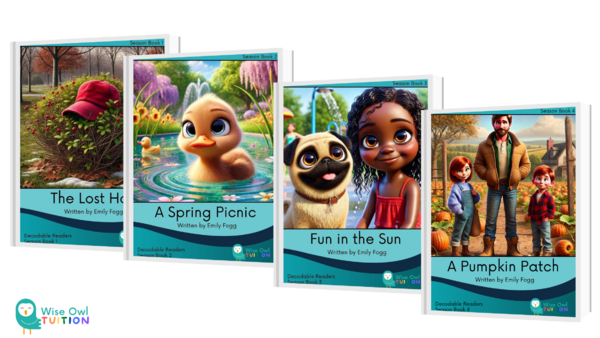How to Beat Summer Learning Loss

It’s not long until the summer holidays are here.
As the sun starts to flex its rays and the familiar sounds of school bells fade into the background, we're diving headfirst into the season of sun-soaked adventures, poolside splashes, and... the notorious "summer learning loss."
Ever heard of the summer learning loss, or the summer slide? Probably not (unless you work in education), but you have probably noticed how by the end of the summer holidays the kids have forgotten how to do things. Or as one parent put it to me - “their brains have turned to mush!”
It’s true we all need and deserve a break but there are some fun ways we can keep the kids' brains active so they don’t lose as much learning.

What is Summer Learning Loss?
Ever noticed how, by the end of summer, the kids seem to forget how to do things?
That's the infamous "summer learning loss" in action!
Picture this: all the hard work and brainpower your kiddo invested during the school year decide to take a vacation of their own, leaving your child a bit rusty when the school bells ring again.
Studies even say kids can lose up to 30% of what they learned over the summer. It's like starting a new school year with a temporary case of amnesia!
For kids already playing catch-up, this slide just makes the gap wider. According to research published by the National Summer Learning Association (yes this is a real thing), summer learning loss can set students behind their peers by several months, with the effects compounding over time.
But don’t worry, summer can also be a great time to get ahead. With the right activities, your kids can start the school year feeling confident and ready to take on new challenges.
5 Fun Ways to Keep Kids Learning at Home
Here are some simple ways to make learning a part of summer fun — no nagging required!
1 - Enter a Summer Reading Challenge

Make reading a fun competition this summer by signing your kids up for a summer reading challenge. These programs are a fantastic way to keep them motivated while boosting their literacy skills.
- How It Works: Most challenges encourage kids to read as many books as they can during the holidays. For each book they finish, they earn rewards like certificates, stickers, or even small prizes.
- Where to Start: Check out Summer Reading Quest, a fun and interactive way for kids to stay engaged with books. This program lets them set goals, track progress, and celebrate achievements all summer long.
Parent Tip: Add an extra layer of fun by creating a family challenge. Set a goal for the whole family, and reward yourselves with a family outing when you hit it!
Why not use our decodable readers in your summer reading challenge? Shop our books here, or try our FREE seasonal decodable readers.

Encouraging your child to participate in a reading challenge helps them stay ahead academically while discovering new adventures through books. It's a win-win!
2. Library Adventures: More Than Just Books

Libraries are a treasure trove of learning opportunities, and they’re often free! Beyond borrowing books, libraries offer a variety activities and resources. Here’s how to make the most of your local library this summer:
Sign Up for Library Cards
The first step is giving your child ownership of their library experience:
- Why It Matters: Having their own card can make kids feel independent and responsible.
- Parent Tip: Let them choose a special wallet or pouch for their card - it’s a small gesture that makes them feel grown-up.
Join Summer Programs
Most libraries run special events during the summer break:
- Reading Challenges: Programs often reward kids with stickers, certificates, or prizes for reading a set number of books. For example, the Mandurah Library Summer Reading Challenge is a local favourite.
- Workshops and Events: Many libraries offer workshops, such as craft sessions, STEM activities, or even coding clubs. Check your library’s website or bulletin board for schedules.
Explore Digital Offerings
Libraries aren’t just about physical books anymore—they’re gateways to digital resources too:
- E-Books and Audiobooks: Platforms like OverDrive or Libby let you borrow books online.
- Educational Apps: Many libraries offer free access to apps like TumbleBooks, which provide interactive books for younger readers.
- Online Classes: Explore resources like free access to language learning (e.g., Mango Languages) or creative platforms like Creativebug.
Borrow More Than Books
Libraries are stocked with resources beyond traditional reading materials:
- Games and Puzzles: Borrow board games, card games, or even console games to cure those "I'm bored" whines.
- Toys and Tools: Some libraries have toy libraries or unique items like STEM kits or musical instruments available for loan.
- Movies and Music: Check out DVDs or access digital streaming services often linked to library memberships.
Challenge Idea: Create a “library scavenger hunt” where kids have to find and borrow items from different categories (e.g., one book, one game, one DVD).
Encourage Book Selection Independence
One of the best ways to get kids excited about reading is to let them choose their books, it doesn't matter if they are above or below their reading level.
- Tips for Younger Readers: Guide them toward age-appropriate books or suggest series that match their interests, like adventure or fantasy.
- For Reluctant Readers: Try graphic novels, comic books, or nonfiction topics like dinosaurs or outer space.
Parent Tip: Ask your librarian for recommendations they’re a goldmine of knowledge about books kids love!
Top library tips for Parents: Make library trips a regular part of your summer routine. For example, designate a specific day as “Library Day” and finish each trip with a treat like ice cream or a park visit. Associating the library with fun will keep kids eager to go back!
3. Make Learning Digital: Explore Educational Resources

Who says screen time has to be mindless? With the right digital tools, kids can have fun while building important skills in maths, reading, and more. Here are some ways to make the most of online and interactive educational resources:
Virtual Field Trips
Travel the world without leaving your home:
- Explore Iconic Landmarks: Visit places like the Great Wall of China or the Eiffel Tower via platforms like Google Earth Voyager.
- Museum Tours: Check out virtual tours offered by places like the Smithsonian National Museum of Natural History or The British Museum.
- Animal Adventures: Many zoos and aquariums, such as San Diego Zoo Live Cams, have live streams of their animal exhibits.
Parent Tip: After a virtual trip, ask your child to write or draw about what they learned. For example, “What was the most exciting thing about visiting the pyramids?”
Interactive Educational Games
Turn learning into play with engaging online games:
- Math Skills: Websites like Cool Math Games offer puzzles and challenges that strengthen maths skills.
- Reading and Literacy: Platforms like Starfall provide phonics games and activities to build reading confidence.
- Science and Coding: Explore hands-on activities on National Geographic Kids or learn coding basics on Scratch.
Challenge Idea: Set a weekly leaderboard for online games to see who can score the highest while learning. Offer small rewards for effort or improvement!
Apps for Fun and Learning
Mobile devices can become powerful tools with the right apps:
- Brain Training: Apps like Khan Academy Kids cover a variety of subjects in an interactive format.
- Creative Writing: Try apps like Storybird to encourage storytelling and creativity.
- Math Challenges: Download Prodigy Math Game for a gamified approach to solving maths problems.
Parent Tip: Download apps that work offline so kids can learn during road trips or other screen-friendly downtime.
DIY Virtual Challenges
Let kids create their own educational challenges using digital tools:
- Trivia Night: Use tools like Kahoot! to create a family trivia quiz with questions on history, science, or their favourite topics.
- Video Reports: Encourage them to research a topic and record a short “news report” on it using apps like iMovie.
- Digital Art Projects: Apps like Canva let kids design posters or presentations about what they’ve learned.
Challenge Idea: Host a virtual “expo” where your child presents their creations to the family or friends over a video call.
Combine Digital and Physical Learning
Create a hybrid approach for maximum engagement:
- Scavenger Hunts: Use online tools to create printable scavenger hunts that mix physical exploration and digital research.
- Augmented Reality Apps: Try apps like Seek by iNaturalist to explore nature with AR features.
- Challenge Idea: Plan a treasure hunt or find one online where clues include QR codes that link to educational content or trivia questions.
4. Turn Storytelling into a Game!

Writing often feels like a chore for kids, especially during the holidays. But with a bit of creativity, it can become a fun and engaging activity that builds their skills without the groans. Here’s how to make writing something they’ll look forward to:
Daily Journaling with a Twist
Encourage your child to keep a daily journal, but make it exciting:
- Themed Journals: Each week can have a theme, like “What if animals could talk?” or “Adventures in space.”
- Prompts: Provide fun prompts like “Write about a day when everything went backwards!” or “What would you do if you found a magic key?”
- Visual Additions: Add doodles or stickers to illustrate their entries.
Parent Tip: Journal alongside your child. Share your entries to model creativity and show them there’s no right or wrong way to express ideas.
Creative Story Challenges
Spark their imagination with storytelling games:
- Story Starters: Begin a story and let them finish it. For example, “Once upon a time, in a forest where everything glowed, a young fox found a strange object...”
- Writing Roulette: Each person writes a sentence, folds the paper to hide it, and passes it on. At the end, unfold for a hilariously unpredictable story.
- Challenge Idea: Use toys, LEGO, or action figures as characters. Build the scene and write a story about it.
Make Writing Practical and Relatable
Tie writing to everyday tasks to show how useful it is:
- Shopping Lists: Ask them to help create a shopping list and add fun challenges like spelling tricky ingredients.
- Letters & Cards: Encourage them to write to friends, grandparents, or even a thank-you card for a recent gift.
- Recipe Books: Compile family recipes and ask them to write step-by-step instructions or add notes like “Best with sprinkles!”
Parent Tip: Reward practical writing by involving it in real activities. For example, bake a cake using their recipe.
Tech Tools to Spark Interest
If traditional writing feels too daunting, digital tools can be a game-changer:
- LCD Writing Pads: These devices make erasing mistakes easy and fun. No fear of “messing up!”
- Typing Games: Explore typing tools like TypingClub to improve keyboard skills while having fun.
- Creative Apps: Use storytelling apps like Storybird to write and illustrate digital books..
Role Play Writing Adventures
Make writing a part of pretend play:
- Newspaper Reporter: Have them “interview” family members or toys, then write their own news article.
- Explorer’s Logbook: Imagine they’re an explorer charting a new land. What did they discover? What dangers did they face?
- Character Diaries: If they have a favourite book or movie, challenge them to write a diary entry as one of the characters.
Top Tip for Parents: Celebrate their efforts, not just the final product. Post their work on the fridge, share it with relatives, or create a “book” of their stories to keep. Positive feedback builds confidence and encourages them to keep going.
5. Sneak Learning into Everyday Life

Everyday activities are the perfect opportunity to keep summer learning loss at bay. Kids don’t even need to know they’re using their brains —it’s all in the fun! Here’s how you can incorporate learning into regular tasks:
Kitchen Math and Science Adventures
Cooking is packed with real-world applications for maths and science:
- Measurements & Fractions: Have your child measure ingredients. Ask questions like, “What’s half a cup?” or “How many teaspoons in a tablespoon?”
- Time Management: Let them set timers for baking or track prep time.
- Science in Action: Talk about what happens when heat changes the batter into cake or why baking soda makes things rise.
- Challenge Idea: Create a “math chef” game where they calculate doubling or halving a recipe.
Supermarket Scavenger Hunt
Turn grocery shopping into an educational adventure:
- Budgeting & Addition: Give your child a budget for snacks or items and have them calculate costs.
- Comparison Shopping: Ask them to compare prices and sizes to find the best deal.
- Nutrition Reading: Let them read labels and find items with the least sugar or most fibre.
- Challenge Idea: Provide a list of items and ask them to estimate the total cost before checkout.
Road Trip Geography and Math
Travelling? It’s the perfect chance to explore geography and math:
- Map Reading: Hand them a map or use Google Maps to track your route. Let them find landmarks and calculate distances.
- Math Problems: If you’re driving at 80 km/h, how long will it take to travel 200 km?
- Storytelling: Have them create a fictional story about a town or landmark you pass.
- Challenge Idea: Assign “tour guide” roles where they research and present facts about the places you’re visiting.
Gardening Growth Tracker
Dig into science and responsibility by starting a small garden:
- Measurement Skills: Have them measure plant growth weekly.
- Data Recording: Create a chart to track height, rainfall, and sunlight exposure.
- Biology Lesson: Discuss how plants grow, and explore concepts like photosynthesis or soil nutrients.
- Challenge Idea: Experiment with planting seeds in different soils or watering schedules and predict results.
Household Math and Problem-Solving
Even chores can become a teaching moment:
- Laundry Sorting: Have them group clothes by colour or size, then count or compare piles.
- Room Organisation: Ask them to measure spaces for furniture rearrangement or calculate the area of a rug.
- DIY Projects: Build or repair something together, using measuring tools and basic instructions.
- Challenge Idea: Assign a “room renovation budget” and let them plan a pretend or real room makeover.
Game Night with a Twist
Board games and card games are excellent for learning:
- Strategy Games: Try chess or checkers to build critical thinking skills.
- Math Games: Play games like Uno or Monopoly to encourage addition, subtraction, and money management.
- Language Games: Scrabble or Boggle can improve vocabulary and spelling.
- Challenge Idea: Create your own family game with rules that include trivia or puzzles.
Incorporate Arts and Crafts
Creative projects are great for building fine motor skills and encouraging problem-solving:
- Measurement in Crafts: Measure fabric or paper for sewing, origami, or other crafts.
- Shapes and Patterns: Explore geometry through quilt patterns, mosaics, or building with LEGO.
- Challenge Idea: Design and build a “city” with cardboard boxes or other recycled materials.
Top Tip for Parents: These activities work best when they feel like an enjoyable holiday activity, not an assignment. Invite your child to brainstorm ideas, set mini-goals, and celebrate small achievements. You’ll be surprised how quickly they learn when they’re having fun!
Set Your Child Up for Success This Summer
Don’t let the summer slide set your child back. Whether it’s through fun activities at home, a visit to the library, or using our Decodable Readers and Ready Set Read course, there are plenty of ways to keep their learning on track.
This summer, let’s make every moment count—because learning doesn’t stop when school’s out.
Try our Free Decodable Readers For FREE
You might also like to read:
50 Things to Do These Summer Holidays
What is Dyslexia and Does My Child Have it?
5 Things Every Parent Needs to Know to Nurture Little Bookworms


0 comments
Leave a comment
Please log in or register to post a comment